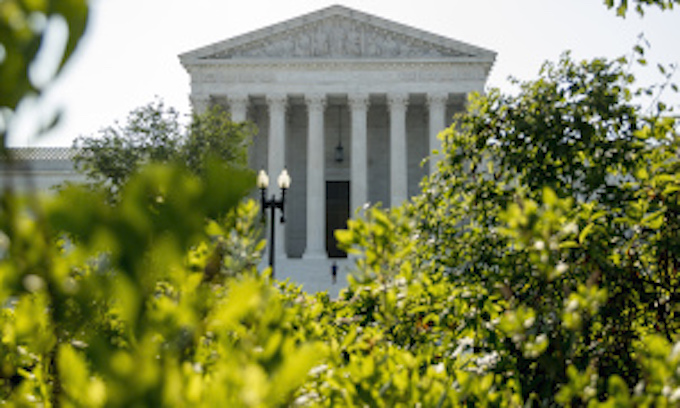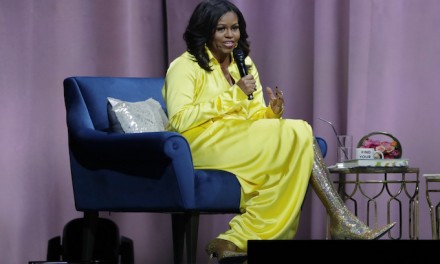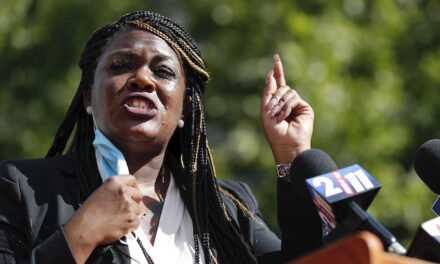The Supreme Court’s conservative majority signaled they may be prepared to challenge race-conscious admissions policies, otherwise known as affirmative action, at two major universities.
The justices began discussing the validity and merits of affirmative action Monday as they hear a case from Students for Fair Admissions, a longtime opponent of the policy. SFFA is asking the court to overturn a 2003 decision Grutter v. Bollinger, which established a precedent to allow colleges to consider race when admitting students. They claim the policy discriminates against Asian and White students.
Conservative justices levied several criticisms of race-conscious policies. Narrow, measurable definitions are often among the highest considerations by the court. The 2003 decision indicated that affirmative action should not be necessary indefinitely and would one day be unnecessary. The timeline set out in the decision was 25 years. Justice Amy Coney Barrett questioned whether this suggestion carried any weight.
“Are you saying when you’re up here and it’s 2040, are you still defending it?” Associate Justice Amy Coney Barrett said. “Like this is just indefinite?”
Clarence Thomas said he has not understood the meaning of the word “diversity” as it is used to describe student bodies and workplaces. Ryan Park, representing the University of North Carolina, said having a diverse population in the student body reduces “group think,” leading to a wider range of ideas informed by a larger variety of experiences.
“I don’t put much stock in that because I’ve heard similar arguments in favor of segregation too.”
During oral arguments for Students for Fair Admissions v. UNC — which could dismantle affirmative action — Justice Thomas challenges counsel on “educational benefits” of diversity. pic.twitter.com/ktXPJm5HaF
— The Recount (@therecount) October 31, 2022
Two colleges are at the center of this debate: the University of North Carolina and Harvard University. Both will be heard as separate cases. The outcome however, could reverberate even beyond institutions of higher education. The National Football League’s Rooney Rule, for example, has long been criticized for lacking teeth and providing no real solution to create genuine inclusion on the sidelines and in front offices.
While college admissions do consider race, it is just one of many factors under consideration throughout the admissions process.
Liberal justices, who are outnumbered 6-3 in the Supreme Court, defended the need for policies to encourage a diverse population of students that more closely represents the whole of the United States.
“I thought that part of what it meant to be an American and to believe in American pluralism is that, actually, our institutions are reflective of who we are as a people,” Associate Justice Elena Kagan said.
The court’s newest justice, Ketanji Brown Jackson, recused herself from discussing Harvard University because she served on its board of overseers. She noted there is no proof that race has been a deciding factor in an SFFA student not being admitted to a college.
“When you give your race you’re not getting any special points. No one’s automatically getting in because race is being used,” Jackson said.
A decision is likely to come next year.
Copyright 2022 United Press International, Inc. (UPI). Any reproduction, republication, redistribution and/or modification of any UPI content is expressly prohibited without UPI’s prior written consent.
—-
This content is published through a licensing agreement with Acquire Media using its NewsEdge technology.



















Once this ‘so called’ diversity is achieved the students end up segregating by race or ethnicity into enclaves for their “safe’ places, meaning there isn’t a homogenous student body but various advocacy groups ‘dedicated’ to the rights of minorities! To end discrimination you have to end discrimination in all its forms including affirmative action which is just a nice term for discrimination!
I think it was J, Paul Getty who paraphrased stated “ If you divide all the wealth of a country at noon, by 12:01 somebody will have more money that everyone else.” It’s the same with trying to equally distribute forced equality by unearned woke redistribution of educational outcomes. In meritocracies the cream always rises to the top, unlike socialist idiocracies of forced equality where it is the well aired talking feces that float first to the top, then swell and sink to the bottom of the swamp. To unnaturally force people to form one great American socialist collective of different races, genders, religions of national origins, etc. in weak Supreme Court rulings of the 60s, 70s 80,s 90s,,,by 2022 the same kind of people just rise to the top of the feculent food chain of failure. This is always what happens when race replaces hard work and merit and becomes the new law of the land, based perhaps on good intentions that like Milton warned, paves the road straight to our current American hell that is downing in diversity except that of the ability to think differently and publicly speak your own experienced learned truths, which only socially affirms the darkest side of human nature.
Democrat President, Joe BIDEN, and OTHER democrat elite,
” Many are destined to reason wrongly; others, not to reason at all; and others, to persecute those who do reason.” Voltaire
That’s something that’s bothered me for years, when we first started hearing of it.. HOW CAN THERE BE DIVERSITY, if every little minority, gets to SEGREGATE THEMSELVES into their own enclaves, and WHITES ARE NOT ALLOWED?!?
Recently a Author of a book, wrote this , as the title of her new book, “When ( RACE TRUMPS MERIT, by Heather Macdonald, said it all thats to be said as to why, The SCOTUS, overturned (Race Based Admissions) at America’s Universities.
John F. KennedyVs Robert F. Kennedy once wrote,” Opponents of CIvil-Rights went off the raills when they JUSTLY went from demanding ( EQUAL Rights ) to ( UNJUSTLY ) demanding EQUAL UUTCOME.”
And then Richard M. Nixon once said, to paraphrase him, said, ” The Establishment is the Enemy, The media is the enemy, The Professors are the enemy, The Professors are the enemy, Write this on a blackboard 100 Times and never forget it.”
The act of favoring or giving special privilege to a minority over a majority based on race is an act of race discrimination itself, a definite no-brainer. Life, liberty and the pursuit of happiness, stated in our Declaration of independence spoke of unrestrictive equal opportunity, not forced equal outcomes, which is an obvious unequal protection in law to the emotional majority flavor of the day which can change with the next wave of unenforced illegal immigration. While The 14th Amendment illustrates legislation that disallows the government from infringing on the rights to pursue ‘Life, Liberty, and the Pursuit of Happiness’ applying to all measures of gender, race, religion, and age by statutes, but to Democrat party leaders’ intent on social re-engineering of American minds should not apply to our educational Socially conquered universities who educate future leaders who will govern and enforce future laws. Any “diversity” that gives equal standing to election stealing criminals, perverts, muggers, rapists and child abusers of any race or color is a definite diversity of destruction of the first magnitude. Meritocracies always prevail over idiocracies which thanks to the Democrats and formerly liberal nominated Supreme Court justices has created nothing but divisive social anxiety of the masses and the elevation of the criminal minded bent on getting their fair share of the social spoils in forced unearned socially redistributed equality.
” Suppose you were an idiot, and suppose you were a member of Congress; but I repeat myself.”
Mark Twain
I love this quote, “While college admissions do consider race, it is just one of many factors under consideration throughout the admissions process” because is is such a load of bovine fecal matter. It is the one factor that has the ability to override everything else. You want proof? Look what happens to minorities that turn Republican. They become cannon fodder for those rabid racists like Whoop De Do and their ilk.
These days, it seems THAT IS ALL they care about. RACE!
You can do it or you can’t. you can learn or your can’t, it’s that simple..